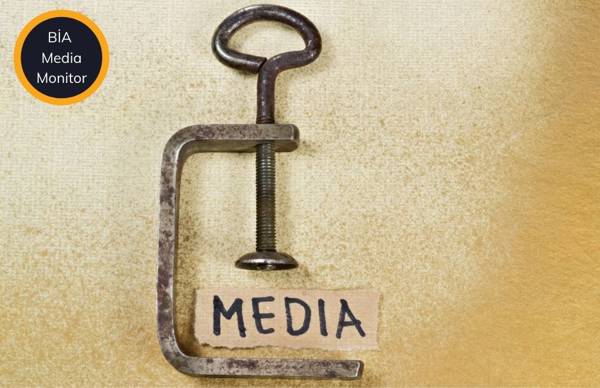Boss Story Bothers Journalists
The survey was conducted among a total of 223 employees of national and local media, television and radio stations and news agencies. Fifty one percent of these journalists said they were not happy with their working conditions.
Prof. Dr. Sengul Ozerkan, Prof. Dr. Yasemin Inceoglu, Associate Prof. Dr. Atilla Girgin and Researcher Bulent Kabas, who prepared and conducted the survey, said they did this research to evaluate how journalists view their jobs, the transformation in their jobs and their working conditions.
Thirty percent of journalists surveyed were newspaper reporters, 19 percent were editors, 14 percent were television reporters and cameramen, ten percent were program directors, news directors and their assistants, eight percent were agency reporters, six percent were columnists, six percent were television program-makers and directors, five percent were editors-in-chief, news chiefs and intelligence chiefs, and two percent were presenters and announcers.
44 percent want different job
Some of the outcomes of the research are below:
* Thirty-four percent became a journalist by coincident, 34 percent with free will, 17 percent became a journalist because of the respectability of the job, ten percent for excitement and action, and five percent became a journalist because of a family tradition.
* In response to the question: "Which job under what conditions would you choose if you had another chance;" 44 percent said they would choose a different job, and only 16 percent said they would choose "journalism again." Forty percent wanted the conditions to be improved in order to become journalists again. A large number of those who would choose the same job under different conditions were reporters.
* Fifty-seven percent of those surveyed defined a journalist as a person who communicates news to people; 39 percent said journalists were people who worked with idealized goals; four percent said journalists created public opinion.
* Forty-one percent said they were most satisfied when they were closer to a news than their competitors and when their exclusive story was published or broadcasted; 32 percent said they were most satisfied when they solved a problem and felt useful; 14 percent said being a witness satisfied them the most; and ten percent said the prestige of the job satisfied them.
What bothers journalists the most?
Fifty-one percent is bothered by having to prepare news in line with the interests of their boss or company; 35 percent complained that the respectability of the job was decreasing and that the social rights were inadequate, and 12 percent said they were bothered by the low news standards.
How about the change in journalism?
Forty-one percent believe journalism is "worsening." Twenty-two percent said "financial interest has become a priority." Sixteen percent said paparazzi-type journalism was on the rise.
* Ninety-eight percent complained about the "Media-Politics-Money" relationship.
* Sixty-one percent said the biggest difficulty they faced was the interference and prevention within the company; 23 percent said financial difficulty, lack of motivation because of a lack of job security and the falling respectability of the job were problems , 14 percent said they did not face any difficulties.
* Fifty-two percent said they were partly influential in their stories, and 42 percent said they were influential.
* Fourteen percent of those surveyed have been a journalist for less than five years; 58 percent between five and 15 years; and 28 percent have been doing journalism for more than 15 years.
Ninety-five were staffers, three percent were freelance, one percent were retired and one percent were owners of media organizations.
* Eighty-two percent of those surveyed knew at least one foreign language; 46 percent was not a member of any political parties, associations or foundations; 34 percent were members of a professional organization; 11 percent were members of a non-professional organization; and 17 percent were members of both a professional and a non-professional organization. (EO/BB)
BİA MEDIA MONITORING REPORT 2024
The government made journalists' lives a living hell in 2024

BİA MEDIA MONITORING/OCTOBER-NOVEMBER-DECEMBER 2024
Truth concealed through repression from all sides targeting journalists

BİA MEDIA MONITORING REPORT
Just silence the journalist, and I won't touch you!

BİA MEDIA MONITORING APRIL-MAY-JUNE 2024
Journalists are on the target and have no legal security anymore!

BİA MEDIA MONITORING REPORT
The era of 'judicial control' confinement and torture in journalism





